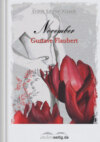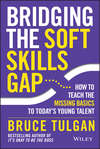Kitabı oku: «Stray Pearls: Memoirs of Margaret De Ribaumont, Viscountess of Bellaise», sayfa 10
CHAPTER XIV. – COURT APPOINTMENT
The expected descent on the Isle of Wight did not take place, for though Prince Rupert was High Admiral, so large a portion of the fleet was disaffected that it was not possible to effect anything. Before long, he went back to the ships he had at Helvoetsluys, taking the Prince of Wales with him. My brother Walwyn yielded to an earnest entreaty that he would let us take care of him at Paris till there was some undertaking really in hand. Besides, he was awaiting the issue of his cause respecting the Ribaumont property in Picardy, to which the Count de Poligny set up a claim in right of a grant by King Henry III. in the time of the League. It must be confessed that the suit lingered a good deal, in spite of the zeal of the young advocate, M. Clement Darpent,—nay, my mother ad my brother De Solivet sometimes declared, because of his zeal; for the Darpent family were well known as inclined to the Fronde party.
They had been Huguenots, but had joined the Church some twenty years before, as it was said, because of the increased disabilities of Huguenots in the legal profession, and it was averred that much of the factious Calvinist leaven still hung about them. At this time I never saw the parents, but Eustace had contracted a warm friendship with the son, and often went to their house. My mother fretted over this friendship far more, as Annora used to declare, than if he had been intimate with the wildest of the roistering cavaliers, or the most dissipated of the petits maitres of Paris. But Eustace was a man now, made older than his twenty-five years by what he had undergone, and though always most respectful to my mother, he could not but follow his own judgment and form his own friendships. And my mother’s dislike to having Clement Darpent at the Hotel de Nidemerle only led to Walwyn’s frequenting the Maison Darpent more than he might have done if he could have seen his friend at home without vexing her.
I do not think that he much liked the old Counsellor, but he used to say that Madame Darpent was one of the most saintly beings he had ever seen. She had one married daughter, and two more, nuns at Port Royal, and she was with them in heart, the element of Augustinianism in the Jansenist teaching having found a responsive chord in her soul from her Calvinist education. She spent her whole time, even while living in the world, in prayers, pious exercises, and works of charity, and she would fain have induced her son to quit secular life and become one of those recluses who inhabited the environs of Port Royal, and gave themselves to labour of mind and of hand, producing works of devotion and sacred research, and likewise making a paradise of the dreary unwholesome swamp in which stood Port Royal des Champs. Clement Darpent had, however, no vocation for such a life, or rather he was not convinced in his own mind that it was expedient for him. He was eight or nine years old when the conversion of his family had taken place, and his mother had taught him carefully her original faith. Her conversation had been, no one could doubt, most hearty and sincere, and her children had gone with her in all simplicity; but the seeds she had previously sown in her son’s mind sprang up as he grew older, and when Eustace became his friend, he was, though outwardly conforming, restless and dissatisfied, by no means disposed to return to Calvinism, and yet with too much of the old leaven in him to remain contented in the Church. He was in danger of throwing off all thought of faith and of Divine things in his perplexity, and I know many of our advisers would say this was best, provided he died at last in the bosom of the Catholic Church; but I can never think so, and, as things stood, Eustace’s advice aided him in remaining at that time where he was, a member of the Church. My brother himself was, my mother ardently hoped, likely to join our communion. The Abbe Walter Montagu who had himself been a convert, strove hard to win him over, trying to prove to him that the English Church was extinct, stifled by her own rebellious heretic children, so soon as the grace that was left in her began to work so as to bring her back to Catholic doctrine and practice. His argument was effectual with many of our fugitives, but not with my brother. He continued still to declare that he believed that his Church was in the course of being purified, and would raised up again at last; and his heart was too loyal to desert her, any more than his King, because of her misfortunes. No one shall ever make me believe that he was wrong. As to Annora, I believe she would rather have been a Huguenot outright than one of us, and she only half trusted me for a long time.
We had begun to settle down into regular habits; indeed, except for the evenings, our days were almost more alike than when in the country. I had gone, as Madame de Rambouillet had advised me, to Father Vincent, and he introduced me to the excellent Madame Goussault, who had the sweetest old face I ever saw. She made me a member of the society for attending the poor in the Hotel Dieu, and my regular days were set apart, twice a week, for waiting on the sick. We all wore a uniform dress of dark stuff, with a white apron and tight white cap, and, unless we were very intimate, were not supposed to recognize one another.
There was good reason for this. At the next bed to that of my patient there was a lady most tenderly, if a little awkwardly, bathing a poor man’s face with essences. Her plump form, beautiful hands, and slightly Spanish accent, could only belong to one person, I thought, but I could hardly believe it, and I turned my eyes away, and tried the more diligently to teach my poor ignorant patient the meaning of his Pater and Ave, when suddenly there was a burst of scolding and imprecation from the other bed. The essence had gone into the man’s eye, and he, a great rough bucheron, was reviling the awkwardness and meddling of ladies in no measured terms, while his nurse stood helplessly wringing her white hands, imploring his pardon, but quite unaware of what was to be done. Happily, I had a sponge and some warm water near, and I ran up with it and washed the man’s eyes, while the lady thanked me fervently, but the man growled out:
‘That is better; if women will come fussing over us with what they don’t understand—You are the right sort; but for her—’
‘Do not stop him,’ hastily said the lady, with her hand on my arm. ‘I love it! I rejoice in it! Do not deprive me, for the love of Heaven!’
I knew who she was then, and Madame de Montausier told me I was right; but that I must keep the secret; and so I did, till after Queen Anne of Austria was dead. She would not let her rank deprive her of the privilege of waiting on the poor, unknown and unthanked; and many hours, when those who blamed her for indolence supposed her to be in bed, she was attending the hospital.
Cecile was never strong enough to give her attendance there, but she made clothes which were given to the patients when they came out. We spent our mornings much as of old; the two elder children generally went to mass with me at St. Germain l’Auxerrois, and if the day were fine, I would take them for a few turns in the Tuileries Gardens afterwards before I taught them their little lessons, and gave my orders to the servants.
Then all the family met a breakfast, after which Gaspard had half an hour more of study with the Abbe, for he was beginning Latin, and was a very promising scholar. He prepared his tasks with me before breakfast, and got on admirably.
Then, unless I had to be at the hospital, we sat together at our embroidery—Cecile, Annora, and I—while the Abbe read to us. It was very hard to poor Nan to sit still, work, and listen. She had been used to such an active unsettled life during the war, and had been put to so many shifts, having at times for months together to do servant’s work, that she knew not how to be quiet. Embroidery seemed to her useless, when she had cooked and washed, and made broths, and scraped lint for the wounded, and she could not care for the history of the Romans, even when Eustace had given her his word they were not Roman Catholics.
She used to say she had the cramp, or that her foot was asleep, and rush off to play with the children, or to see if my mother wanted her. My mother did not care for the reading, but she did want Nan to learn to sit in her chair and embroider, like a demoiselle bien elevee, instead of a wild maiden of the civil wars. However, my mother spent most of her day in waiting on the Queen of England, who was very fond of her, and liked to have her at her levee, so that we really saw very little of her.
My brother, when not needed by his Queen, nor in consultation with the cavaliers, or with his lawyers, would often join in our morning’s employment. He was not strong, and he liked to recline in a lager chair that I kept ready for him, and listen while the Abbe read, or sometimes discuss with him questions that arose in the reading, and this was a great relief to Nan, who seldom declared that her feet tingled when he was there.
After our dinner we either walked in the garden where the children played, or went out to make visits. In the evening there were receptions. We had one evening to which, as I said, came our poor exiled countrymen, and there were other assemblies, to some of which we went by invitation; but at the Hotel de Rambouillet, and one or two others we knew we were always welcome. There we heard M. Corneille read the Cid, on of his finest pieces, before it was put on the stage. I cannot describe how those noble verses thrilled in our ears and heart, how tears were shed and hands clasped, and how even Annora let herself be carried along by the tide. Clement Darpent was often there, and once or twice recited again, but Madame de Rambouillet always took care first to know what he was going to say. A poem upon St. Monica was the work of his that I liked bets, but it was not so much admired as verses more concerned with the present.
The Prince of Conde came back to Paris for a few weeks, and my poor Cecile was greatly disappointed that her husband remained in garrison and did not come with him. ‘But then,’ as she said to console herself, ‘every month made the children prettier, and she was trying to be a little more nice and agreeable.’
Two appointments were made for which I was less grateful than was my mother. My little son was made one of the King’s gentlemen of the bedchamber, and Mademoiselle requested me to be one of her ladies-in-waiting. She was very good-natured, provided she thought herself obeyed, and she promised that my turn should always come at the same time as my son’s, so that I might be at home with him. I was a little laughed at, and my former name of Gildippe was made to alternate with that of Cornelia; but French mothers have always been devoted to their sons, and there was some sympathy with me among the ladies.
I owned that my presence was required at home, for Gaspard generally came back a much naughtier boy than he went, and with a collection of bad words that I had to proscribe. Before the Queen-Regent, the little King and the Duke of Anjou were the best boys in the world, and as stately and well-mannered as become the first gentlemen of France; but when once out of her sight they were the most riotous and mischievous children in the world, since nobody durst restrain, far less punish them. They made attacks on the departments of the stewards and cooks, kicking and biting any one who tried to stop them, and devouring fruit and sweetmeats till their fine clothes were all bedaubed, and they themselves indisposed, and then their poor valets suffered for it. The first time this happened my poor Gaspard was so much shocked that he actually told the King that it was dishonourable to let another suffer for his fault.
‘I would have you to know, Monsieur le Marquis,’ said Louis XIV., drawing himself up, ‘that the King of France is never in fault.’
However, I will say for His Majesty that it was the Duke of Anjou who told the Queen that the little Nidemerle had been disrespectful, and thus caused the poor child to be sent home, severely beaten, and with a reprimand to me for not bringing him up better.
I leave you to guess how furious I was, and how I raged about the house till I frightened my mother, Annora backing me up with all her might. We were almost ready to take Gaspard in our hands and escape at once to England. Even in its present sad state I should at least be able to bring up my boy without having him punished for honourable sentiments and brave speeches. Of course it was the Abbe on the one hand, and Eustace on the other, who moderated me, and tried to show me, as well as my son, that though the little Louis might be a naughty boy, the kingly dignity was to be respected in him.
‘Thou wouldst not blame thy mother even if she were in fault,’ argued Eustace.
‘But my mother never is in fault,’ said Gaspard, throwing himself into my arms.
‘Ah, there spoke thy loyal heart, and a Frenchman should have the same spirit towards his King.’
‘Yes,’ broke out Annora; ‘that is what you are all trying to force on your children, setting up an idol to fall down and crush yourselves! For shame, Walwyn, that you, an Englishman, should preach such a doctrine to the poor child!’
‘Nay, you little Frondeuse, there is right and safety in making a child’s tongue pay respect to dignities. He must separate the office from the man, or the child.’
All that could be done was that I should write a humble apology for my son. Otherwise they told me he would certainly be taken from so dangerous a person, and such a dread always made me submissive to the bondage in which we were all held.
Was it not strange that a Queen who would with her own hands minister to the suffered in the hospital should be so utterly ignorant of her duties in bringing up the heir of the great kingdom? Gaspard, who was much younger, could read well, write, and knew a little Latin and English, while the King and his brother were as untaught as peasants in the fields. They could make the sign of the cross and say their prayers, and their manners COULD be perfect, but that was all. They had no instruction, and their education was not begun. I have the less hesitation in recording this, as the King has evidently regretted it, and has given first his son, then his grandsons, the most admirable masters, besides having taken great pains with himself.
I suppose the Spanish dislike to instruction dominated the Queen, and made her slow to inflict on her sons what she so much disliked, and she was of course perfectly ignorant of their misbehaviour.
I am sorry to say that Gaspard soon ceased to be shocked. His aunt declared that he was becoming a loyal Frenchman who he showed off his Louvre manners by kicking the lackeys, pinching Armantine, and utterly refusing to learn his lessons for the Abbe, declaring that he was Monsieur le Marquis, and no one should interfere with him. Once when he came home a day or two before me, he made himself quite intolerable to the whole house, by insisting on making Armantine and her little brother defend a fortress on the top of the stairs, which he attacked with the hard balls of silk and wool out of our work-baskets. Annora tried to stop him, but only was kicked for her pains. It was his HOTEL he said, and he was master there, and so he went on, though he had given poor Armantine a black eye, and broken two panes of glass, till his uncle came home, and came upon him with a stern ‘Gaspard.’ The boy began again with his being the Marquis and the master, but Eustace put him down at once.
‘Thou mayst be Marquis, but thou art not master of this house, nor of thyself. Thou art not even a gentleman while thou actest thus. Go to thy room. We will see what thy mother says to this.’
Gaspard durst not struggle with his uncle, and went off silent and sulky; but Eustace had subdued him into penitence before I came home. And I can hardly tell how, but from that time the principle of loyalty to the sovereign, without imitation of the person, seemed to have been instilled into the child, so that I feel, and I am sure he will agree with me, that I owe my son, and he owes himself, to the influence of my dear brother.
Had it not been for leaving him, my service to Mademoiselle would have been altogether amusing. True, she was marvelously egotistical and conceited, but she was very good-natured, and liked to make those about her happy. Even to her stepmother and little sisters, whom she did not love, she was never unkind, though she lived entirely apart, and kept her own little court separately at the Louvre, and very odd things we did there.
Sometimes we were all dressed up as the gods and goddesses, she being always Minerva—unless as Diana she conducted us as her nymphs to the chase in the park at Versailles. Sometimes we were Mademoiselle Scudery’s heroines, and we wrote descriptions of each other by these feigned names, some of which appear in her memoirs. And all the time she was hoping to marry the Emperor, and despising the suit of Queen Henrietta for our Prince of Wales, who, for his part, never laughed so much in secret as when he attended this wonderful and classical Court.
CHAPTER XV. – A STRANGER THANKSGIVING DAY
There was a curious scene in our salon the day after the news had come of the great victory of Lens. Clement Darpent had been brought in by my brother, who wished him to hear some English songs which my sister and I had been practicing. He had been trying to learn English, and perhaps understood it better than he could speak it, but he was somewhat perplexed by those two gallant lines—
‘I could not love thee, dear, so much,
Loved I not honour more.’
Annora’s eyes flashed with disappointed anger as she said, ‘You enter not into the sentiment, Monsieur. I should have hoped that if any Frenchman could, it would be you!’
‘For my part,’ observed my mother, ‘I am not surprised at the question not being appreciated by the gens de la robe.’
I saw Eustace look infinitely annoyed at this insult to his friend’s profession, and to make it worse, Gaspard, who had come home that morning from the palace, exclaimed, having merely caught the word ‘honour’—
‘Yes, the gens de la robe hate our honour. That is why the King said, when news of our great victory came, ‘Oh, how sorry the Parliament will be!’
‘Did he?’ exclaimed my mother. ‘Is it true, my grandson?’
‘True; yes indeed, Madame ma Grandmere,’ replied Gaspard. ‘And you should have seen how all the world applauded him.’
‘I would not have applauded him,’ said Eustace sadly. ‘I would have tried to teach him that nothing can be of more sad omen for a king than to regard his Parliament as his enemy.’
‘My son,’ returned my mother, ‘if you must utter such absurdities, let it not be before this child. Imagine the consequence of his repeating them!’
‘Ah! sighed Darpent, ‘it would be well if only, through child lips or any others, the King and his mother could learn that the Parliament can heartily rejoice in all that is for the true glory and honour in justice and in the well-being of her people, and that we love above all!’
‘There,’ said I, glad to turn the conversation from the dangerous political turn it was taking, ‘I knew it was merely the language and not the sentiment of our song that Monsieur Darpent did not comprehend.’
And when it was translated and paraphrased, he exclaimed, ‘Ah! truly Mademoiselle may trust me that such sentiments are the breath of life to those who are both French and of the robe. May ONE at least live to prove it to her!’
The times were threatening in France as well as in England, for if in the latter realm, the thunderbolt had fallen, in the former, the tempest seemed to be gathering. They say that it dispersed after a few showers, but there are others who say that it is only stored up to fall with greater fury in later times. Ah, well! if it be so, I pray that none of mine may be living to see it, for I cannot conceal from myself that there is much among us that may well call down the vengeance of Heaven. Yet, if our good Duke of Burgundy fulfil the promise of his youth, the evil may yet be averted.
The Parliament of Paris had made an attempt to check the reckless exactions of the Court by refusing to register the recent edicts for taxation, and it was this that made the Queen so angry with them. Eustace began to explain that it had been the unfortunate endeavour to raise money without the consent of Parliament that had been the immediate cause of the troubles in England for which they were still suffering. This implied censure of King Charles so displeased my mother that she declared that she would listen to such treason no longer, started up and quitted the room, calling Annora with her. Poor Annora gave one of her grim looks, but was obliged to obey; I did not feel bound to do the same, as indeed I stood in the position of hostess: so I remained, with Gaspard leaning on my lap, while my brother and M. Darpent continued their conversation, and the latter began to describe the actual matter in debate, the Paulette, namely, the right of magistrates to purchase the succession to their offices for their sons, provided a certain annual amount was paid to the Crown. The right had to be continually renewed by fresh edicts for a certain term. This term was now over, and the Crown refused to renew it except on condition that all that salaries should be forfeited for four years. To our English notions the whole system was a corruption, but the horrible ill faith of the Court, which ruined and cheated so many families, was nevertheless shocking to us. Clement Darpent, who had always looked on the Paulette as a useful guarantee, and expected to succeed to his father’s office as naturally as Eustace had done to the baronies of Walwyn and Ribaumont, could not then see it in the same light, and expatiated on the speeches made by the Councillors Broussel, Blancmesnil, and others, on the injustice of such a measure.
Gaspard caught the name of Blancmesnil, and looking up, he said ‘Blancmesnil! It is he that the King says is a scoundrel to resist his will; but he will soon be shut up. They are going to arrest him.’
‘Pray how long have they taken little imps like thee into their counsels?’ demanded Eustace, as we all sat petrified at this announcement.
‘It was the Duke of Anjou who told me,’ said Gaspard. ‘He was sitting at the foot of the Queen’s bed when she settled it all with M. le Cardinal. They will send to have coup de main made of all those rogues as soon as the Te Deum is over tomorrow at Notre Dame, and then there will be no more refusing of money for M. le Prince to beat the Spaniards with.’
‘The Duke should choose his confidants better,’ said Eustace. ‘Look here, my nephew. Remember from henceforth that whatever passes in secret council is sacred, and even if told to thee inadvertently should never be repeated. Now leave us; your mother needs you no longer.’
My little boy made his graceful bow at the door, looking much perplexed, and departed. I rose likewise, saying I would forbid him to repeat his dangerous communication, and I trusted that it would do him no harm.
‘Madame,’ said M. Darpent, ‘I will not conceal from you that I shall take advantage of what I have heard to warn these friends of my father.’
‘You cannot be expected to do otherwise,’ said Eustace; ‘and truly the design is so arbitrary and unjust that, Cavalier as I am, I cannot but rejoice that it should be baffled.’
‘And,’ added Darpent, before I could speak, ‘Madame may be secure that no word shall pass my lips respecting the manner in which I received the warning.’
I answered that I could trust him for that. I could not expect any more from him, and indeed none of us were bound in honour. The fault was with the Duke of Anjou, who, as we all know, was an incorrigible chatter-box all his life, and never was trusted with any State secrets at all; but his mother must have supposed him not old enough to understand what she was talking about, when she let him overhear such a conversation.
Gaspard had, however, a private lecture from both of us on the need of holding his tongue, both on this matter and all other palace gossip. He was no longer in waiting, and I trusted that all would be forgotten before his turn came again; but he was to join in the state procession on the following day, a Sunday, when the King and Queen-Regent were return thanks at Notre Dame for the victory at Lens.
Ah, children! we had victories then. Our Te Deums were not sung with doubting hearts, to make the populace believe a defeat a victory—a delusion to which this French nation of ours is only too prone. My countryman, Marlborough, and the little truant Abbe, Eugene of Savoy, were not then the leaders of the opposite armies; but at the head of our own, we had M. le Prince and the Vicomte de Turenne in the flower of their age, and our triumphs were such that they might well intoxicate the King, who was, so to speak, brought up upon them. It was a magnificent sight, which we all saw from different quarters—my mother in the suite of the Queen of England, Gaspard among the little noblemen who attended the King, I among the ladies who followed Mademoiselle, while my brother and sister, though they might have gone among their own Queen’s train, chose to shift for themselves. They said they should see more than if, like us, they formed part of the pageant; but I believe the real reason was, that if they had one early to Queen Henrietta’s apartments in full dress, they must have missed their English prayers at the Ambassador’s, which they never chose to do on a Sunday.
The choir part of the nave was filled with tribunes for the royal family and their suites; and as the most exalted in rank went the last, Mademoiselle, and we ladies behind her, came to our places early enough to see a great deal of the rest of the procession. The whole choir was already a field of clergy and choristers, the white robes of the latter giving relief to the richly-embroidered purple and lace-covered robes of the Bishops, who wore their gold and jeweled mitres, while their richly-gilded pastoral staves and crosses were borne before them. The Coadjutor of Paris, who was to be the Celebrant, was already by the Altar, his robes absolutely encrusted with gold; and just after we had taken our places there passed up the Cardinal, with his pillars borne before him, in his scarlet hat and his robes.
Every lady was, according to the Spanish fashion, which Queen Anne had introduced, in black or in white—the demoiselles in white, the married in black—and all with the black lace veil on their heads. The French ladies had murmured much at this, but there is no denying that the general effect was much better for the long lines of black above and white below, and as there was no restriction upon their jewellery, emeralds, rubies, and diamonds flashed wherever the light fell on them.
Beyond, a lane was preserved all down the length of the nave by the tall, towering forms of the Scottish archers, in their rich accoutrements, many of them gallant gentlemen, who had served under the Marquess of Montrose; and in the aisles behind them surged the whole multitude—gentlemen, ladies, bourgeois, fishwives, artisans, all sorts of people, mixed up together, and treating one another with a civility and forbearance of which my brother and sister confessed and English crowd would have been incapable, though they showed absolutely no reverence to the sacred place; and I must own the ladies showed as little, for every one was talking, laughing, bowing to acquaintance, or pointing out notorieties, and low whispers were going about of some great and secret undertaking of the Queen-Regent. Low, did I say! Nay, I heard the words ‘Blancmesnil and Broussel’ quite loud enough to satisfy me that if the attempt had been disclosed, it would not be possible to fix the blame of betraying it on my little son more than on twenty others. Indeed the Queen of England observed to her niece, loud enough for me to hear her, that it was only too like what she remembered only seven years ago in England, when her dear King had gone down to arrest those five rogues of members, and all had failed because of that vile gossip Lady Carlisle.
‘And who told my Lady Carlisle?’ demanded Mademoiselle with some archness; whereupon Queen Henrietta became very curious to know whether the handsome Duke of Beaufort were, after his foolish fashion, in the crowd, making himself agreeable to the ladies of the market-place.
Trumpets, however, sounded, and all rose from their seats, as up the nave swept Queen Anne, her black mantilla descending over her fair hair from a little diamond crown, her dress—white satin—with a huge long blue velvet train worked with gold fleurs-de-lys, supported by four pair of little pages in white satin. Most regal did she look, leading by the hand the little Duke of Anjou; while the young King, who was now old enough to form the climax of the procession, marched next after in blue and gold, holding his plumed hat in his hand, and bowing right and left with all his royal courtesy and grace, his beautiful fair hair on his shoulders, shining with the sun. And there was my little Marquis among the boys, who immediately followed him in all his bright beauty and grace.
Most glorious was the High Mass that followed. Officer after officer marched up and laid standard after standard before the Altar, heavy with German blazonry, or with the red and gold stripes of Aragon, the embattled castles of Castille, till they amounted to seventy-three. It must have been strange to the Spanish Queen to rejoice over these as they lay piled in a gorgeous heap before the high Altar, here and there one dim with weather or stained with blood. The peals of the Te Deum from a thousand voices were unspeakably magnificent, and yet through them all it seemed to me that I heard the wail not only of the multitudes of widowed wives and sonless parents, but of the poor peasants of all the nation, crying aloud to Heaven for the bread which they were forbidden to eat, when they had toiled for it in the sweat of their brow. Yes, and which I was not permitted to let them enjoy!




















